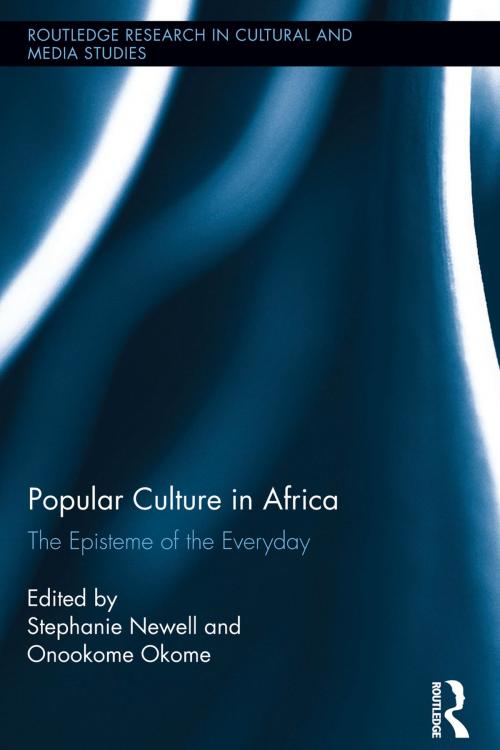Popular Culture in Africa
The Episteme of the Everyday
Nonfiction, Social & Cultural Studies, Social Science, Cultural Studies, Popular Culture| Author: | ISBN: | 9781135068936 | |
| Publisher: | Taylor and Francis | Publication: | November 12, 2013 |
| Imprint: | Routledge | Language: | English |
| Author: | |
| ISBN: | 9781135068936 |
| Publisher: | Taylor and Francis |
| Publication: | November 12, 2013 |
| Imprint: | Routledge |
| Language: | English |
This volume marks the 25th anniversary of Karin Barber’s ground-breaking article, "Popular Arts in Africa", which stimulated new debates about African popular culture and its defining categories. Focusing on performances, audiences, social contexts and texts, contributors ask how African popular cultures contribute to the formation of an episteme. With chapters on theater, Nollywood films, blogging, and music and sports discourses, as well as on popular art forms, urban and youth cultures, and gender and sexuality, the book highlights the dynamism and complexity of contemporary popular cultures in sub-Saharan Africa.
Focusing on the streets of Africa, especially city streets where different cultures and cultural personalities meet, the book asks how the category of "the people" is identified and interpreted by African culture-producers, politicians, religious leaders, and by "the people" themselves. The book offers a nuanced, strongly historicized perspective in which African popular cultures are regarded as vehicles through which we can document ordinary people’s vitality and responsiveness to political and social transformations.
This volume marks the 25th anniversary of Karin Barber’s ground-breaking article, "Popular Arts in Africa", which stimulated new debates about African popular culture and its defining categories. Focusing on performances, audiences, social contexts and texts, contributors ask how African popular cultures contribute to the formation of an episteme. With chapters on theater, Nollywood films, blogging, and music and sports discourses, as well as on popular art forms, urban and youth cultures, and gender and sexuality, the book highlights the dynamism and complexity of contemporary popular cultures in sub-Saharan Africa.
Focusing on the streets of Africa, especially city streets where different cultures and cultural personalities meet, the book asks how the category of "the people" is identified and interpreted by African culture-producers, politicians, religious leaders, and by "the people" themselves. The book offers a nuanced, strongly historicized perspective in which African popular cultures are regarded as vehicles through which we can document ordinary people’s vitality and responsiveness to political and social transformations.















